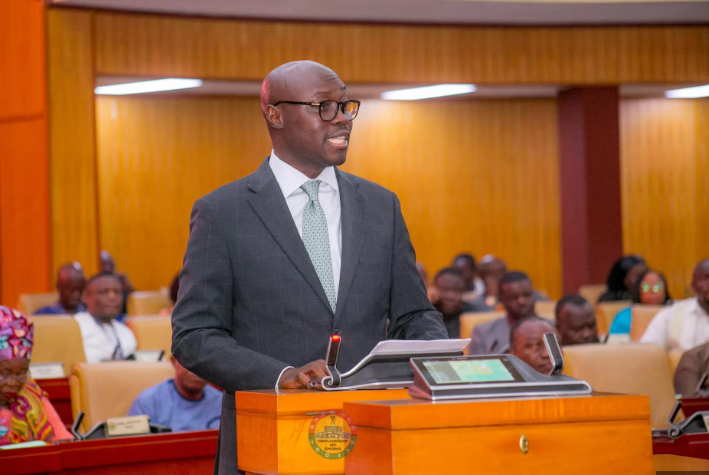The Forson Doctrine: Spend wisely, guard the gold and more – Nsemkeka
The Forson Doctrine outlines practical reforms to stabilize Ghana’s economy through fiscal discipline, gold management, energy reform, accountability and strategic global partnerships for sustainable growth
Ghana’s economy, long described as sluggish and inconsistent, may finally have a practical path forward. The Forson Doctrine, introduced by Minister of Finance Dr. Ato Forson, offers a realistic, people-centered approach aimed at restoring confidence in the cedi and building a foundation for long-term economic stability.
At its core, the doctrine promotes fiscal discipline, better resource management, and systemic accountability, simple but often overlooked principles that align with the concerns of everyday Ghanaians.
1. Spend Wisely, Not Wildly
Central to the doctrine is a renewed commitment to fiscal responsibility. With amendments to the Public Financial Management Act, the government has introduced stronger rules on borrowing and budget management. Public agencies are now held to tighter financial controls and are evaluated based on their compliance. This shift marks a clear move away from years of unrestrained spending, promoting transparency and financial prudence across state institutions.
2. Guard the Gold
Despite Ghana’s leading position as Africa’s top gold producer, the country has struggled to leverage its mineral wealth effectively. The establishment of the Ghana Gold Board (GoldBod) aims to address this gap by formalizing gold trading and strengthening foreign exchange reserves. The recent appreciation of the cedi suggests that better gold management can reduce dependence on external financial interventions and help stabilize the local currency.
3. Stop the Power Losses
The energy sector remains a significant drain on national resources, contributing to losses exceeding $2 billion annually. The Forson Doctrine prioritizes reforms in this space through increased private sector participation, fairer procurement processes, and stronger oversight. These changes are essential to stop the economic hemorrhage and ensure a reliable and efficient power supply for both industries and households.
4. Hold Officials Accountable
To address persistent inefficiencies and mismanagement, the Ministry of Finance has introduced a Compliance Desk tasked with monitoring how public funds are used. This internal accountability mechanism rewards compliant institutions and exposes those that fall short. By integrating oversight into the system itself, the doctrine promotes integrity and reduces opportunities for misuse of public resources.
5. Team Up Globally
Recognizing the importance of global partnerships, the doctrine supports strategic collaboration with international financial institutions. However, the approach emphasizes balanced engagement that supports domestic reforms rather than dependency. The aim is to use international support as a lever for strengthening Ghana’s internal systems and preserving economic sovereignty.
A Doctrine in Motion
The Forson Doctrine offers a grounded alternative to politically driven or overly ambitious economic plans. With its focus on spending discipline, resource optimization and institutional accountability, it outlines a clear and practical route to recovery.
While the long-term success depends on consistent implementation, the framework already provides clarity and renewed purpose to Ghana’s economic agenda, placing common sense at the heart of national policy.

